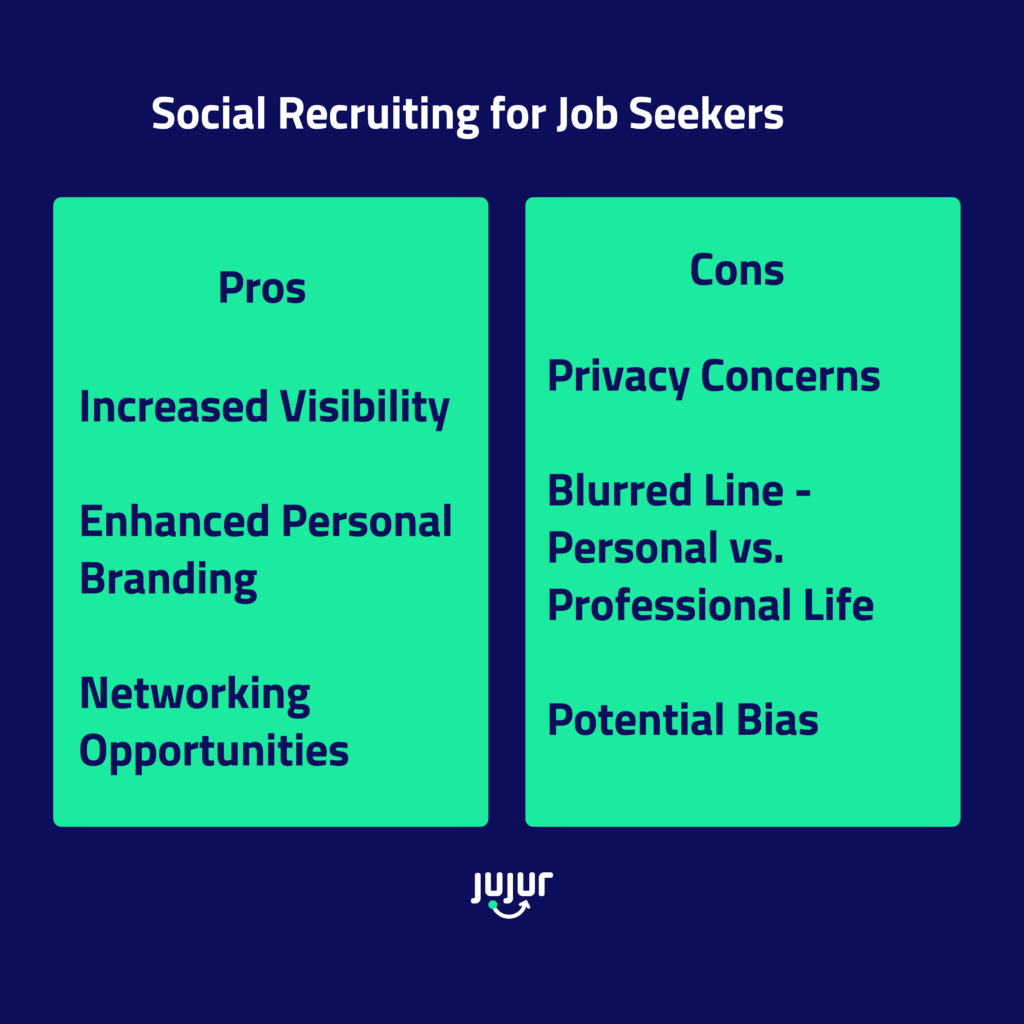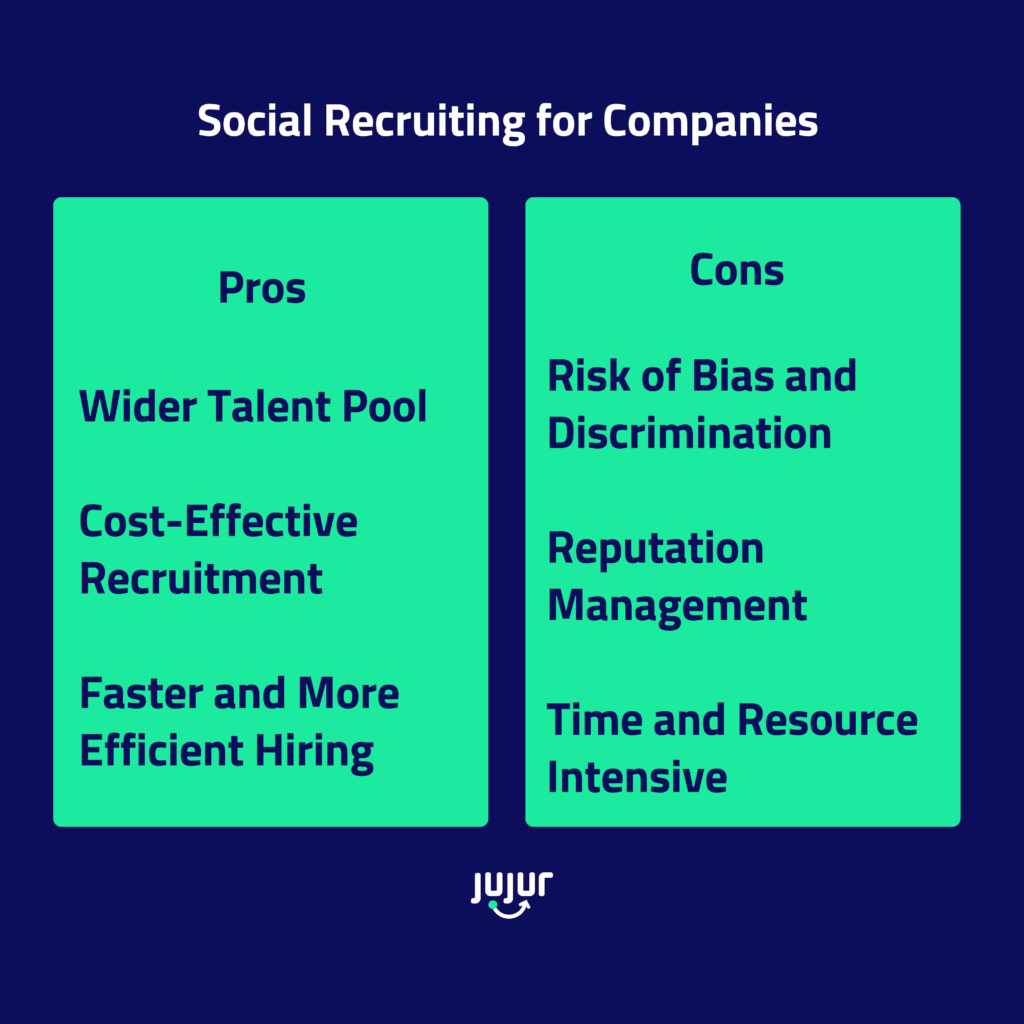Social recruiting has become a game-changer for both job seekers and companies of the 21st century. Whether you’re looking for your next career move or aiming to build a stronger workforce, understanding the ins and outs of social recruiting is essential. In this article, we’ll dive into what social recruiting is, explore its benefits and challenges for job seekers and companies alike, share best practices, and even peek into future trends that could reshape the landscape.
- What is Social Recruiting?
- Pros and Cons for Job Seekers
- Pros and Cons for Companies
- Best Practices for Successful Social Recruiting
- Future Trends in Social Recruiting
What is Social Recruiting?
Social recruiting is the process of using social media platforms such as LinkedIn, Facebook, Twitter, and even niche networks to find, attract, and hire candidates. This modern twist on traditional recruiting methods leverages the vast reach and interactive nature of social media to connect with potential employees in a more dynamic and engaging way.
Key Points:
- Digital vs. Traditional Recruiting: Social recruiting bridges the gap between traditional job boards and a more interactive, digital approach.
- Platforms in Action: Companies post job openings and network with candidates through platforms that many of us use every day.
- Employee Referrals & Branding: Not only do companies reach out to passive candidates, but employees also become brand ambassadors, sharing job openings within their networks.
Data from LinkedIn and industry reports show a significant increase in recruitment success when companies incorporate social media into their hiring strategies.
Pros and Cons for Job Seekers
Social recruiting isn’t just beneficial for companies; it can offer great advantages for job seekers too. However, like most things, it comes with its own set of challenges.

Pros for Job Seekers
- Increased Visibility:
- Direct access to recruiters and hiring managers.
- Greater exposure to a variety of job opportunities that might not be listed on traditional job boards.
- Enhanced Personal Branding:
- A chance to showcase skills, endorsements, and professional achievements.
- Building an online presence that goes well beyond your resume.
- Networking Opportunities:
- Engaging with industry professionals in real-time.
- Participating in groups and discussions that can lead to unexpected job opportunities.
Studies have shown that active social profiles can significantly increase the likelihood of landing an interview, as recruiters often look for candidates who are engaged online.
Cons for Job Seekers
- Privacy Concerns:
- The risk of oversharing personal information that might be misused.
- Balancing what to share and what to keep private can be tricky.
- Blurred Lines Between Personal and Professional Life:
- Maintaining a consistent professional image while also being true to yourself.
- The pressure to constantly update and manage your online profiles.
- Potential for Bias and Misrepresentation:
- Social profiles might lead to unconscious bias.
- Curated profiles might not fully capture your capabilities or experiences.
Pros and Cons for Companies
For companies, social recruiting offers a fresh approach to finding the right talent, but it’s not without its challenges.

Pros for Companies
- Wider Talent Pool:
- Access to a broader and more diverse range of candidates.
- Reaching out to passive candidates who aren’t actively job hunting.
- Cost-Effective Recruitment:
- Reducing the need for expensive traditional recruitment channels.
- Leveraging employee advocacy and organic reach for branding.
- Faster and More Efficient Hiring:
- Real-time engagement with candidates leads to quicker vetting.
- Streamlined communication via social channels speeds up the process.
Industry reports from platforms like Glassdoor and LinkedIn Talent Solutions often highlight significant cost savings and improved hiring speeds thanks to social recruiting.
Cons for Companies
- Risk of Bias and Discrimination:
- Relying on social profiles can sometimes lead to unintentional bias.
- Companies must be careful to maintain fair hiring practices to avoid legal pitfalls.
- Reputation Management:
- Online employer branding is crucial, but negative reviews or public feedback can hurt.
- Continuous monitoring of social media is required to maintain a positive image.
- Time and Resource Intensive:
- Managing multiple social media platforms can be demanding.
- Aligning social recruiting with broader HR strategies requires ongoing effort.
Best Practices for Successful Social Recruiting
No matter where you stand on social recruiting, a few best practices can help you maximize its benefits while minimizing the downsides:
- Optimize Your Profiles:
Ensure your profiles are consistent, up-to-date, and reflective of your brand, whether you’re an individual or a company. - Engage Actively:
- Build meaningful connections by interacting with posts and joining relevant groups.
- Encourage employee advocacy to expand your reach.
- Leverage Analytics:
Use data to track engagement and recruitment success. Adjust your strategies based on what the metrics tell you.
Actionable Tips:
- Develop a content calendar for regular social media posts.
- Use targeted ads to reach specific candidate demographics.
- Regularly review and update privacy settings to protect sensitive information.
Future Trends in Social Recruiting
The landscape of social recruiting is constantly evolving. Here’s what you can expect in the near future:
- Emerging Technologies:
- AI and machine learning are set to revolutionize candidate screening.
- Video interviews and even virtual reality may become more commonplace in the recruitment process.
- Evolving Candidate Expectations:
- With the rise of remote work, candidates increasingly value transparent company cultures and authentic engagement.
- Companies that adapt quickly to these expectations are likely to attract top talent.
- Data-Driven Predictions:
- Industry experts, including insights from Gartner and LinkedIn Future of Work reports, predict that digital recruitment will continue to grow.
- Staying ahead means embracing these technologies and adjusting your strategies accordingly.
Adapting early to these trends can ensure that both job seekers and companies remain competitive in an increasingly digital and interconnected recruitment landscape.
Conclusion
Social recruiting is reshaping how job seekers and companies connect. For job seekers, it offers increased visibility, enhanced personal branding, and growing networking opportunities, while companies benefit from access to a wider talent pool, cost-effective strategies, and faster hiring processes. However, both sides must navigate challenges like privacy concerns, potential bias, and the continuous need for effective reputation management.
The key takeaway? A balanced, strategic approach is essential. By optimizing your online presence, engaging authentically, and staying informed about emerging trends, you can harness the full power of social recruiting.
Have you had any experiences, good or bad, with social recruiting? Share your thoughts in the comments below!









